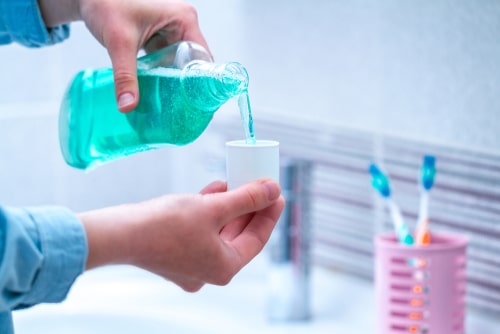
We all use mouthwashes thinking that they are helpful, but are they really?
Not All Are What They Are Advertised To Be
Mouthwash can do more than simply freshen your breath — it can ward off gum disease. But that’s only if you use a bacteria-fighting rinse. Many over the counter mouthwashes are mis advertised as killing bacteria.
There is a difference between antiseptic mouthwashes and antibacterial mouthwashes. Antibacterial products kill bacteria, or hinder their reproduction. Antiseptic substances inhibit the growth and reproduction of many microorganisms. thus products like Listerine and Crest pro-health mouthwashes are advertised as antiseptic but do not kill the bacteria. Only prescription mouthwashes like Peridex are proven to kill bacteria. That is what we dentists use to help healing after deep cleanings.
Prescription mouthwashes that contain fluoride can also be helpful for fighting cavities. For those patients who are very cavity prone or suffer from dry mouth, those with fluoride are helpful.
Lastly, We Like To Use Mouthwashes To Fight Bad Breath
• Mouthwash containing antibacterial ingredients such as chlorhexidine and cetylpyridinium help to decrease the amount of bacteria in the mouth responsible for bad breath.
• Mouthwash with chlorine dioxide and zinc helped to wipe out bad smells by neutralizing them
Bad breath is caused by bacteria and traces of food that collect in the back of and creases of the tongue.
Researchers write that these particles and bacteria then “break down into volatile sulphur compounds,” which are responsible for the smell.
In addition to, tongue scraping is very effective in reducing this bacteria.
Each mouthwash forks for different situations. Be sure to match your situation with the correct mouthwash.
If you have any questions, contact your dentist Dr. Charmaine Johnson at Premiere Smile Center in Fort Lauderdale will be able to guide you along your path to healthy living.






















